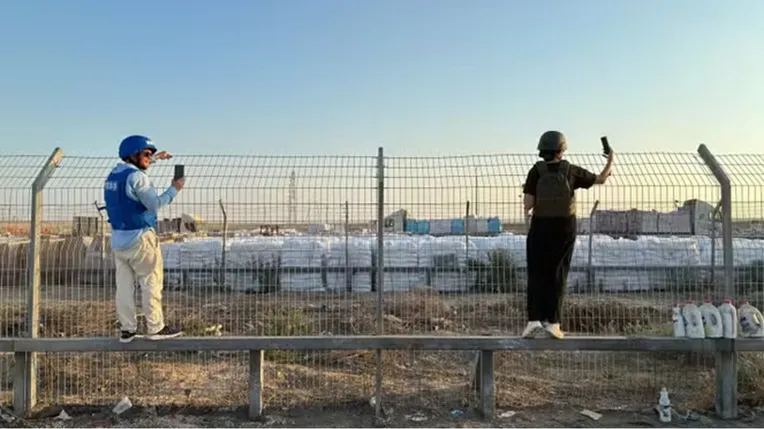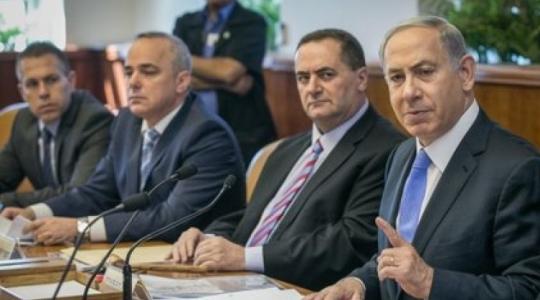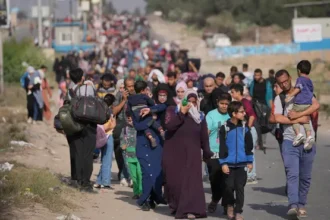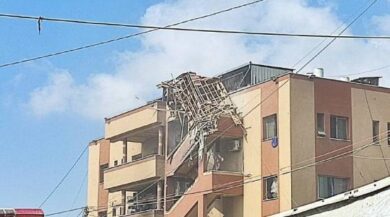At Gaza border, influencers bolster Israeli propaganda
Al-Khamisa News Network - Gaza

A report in the French newspaper Le Monde said Tel Aviv has employed a group of influencers, from inside and outside the occupied territories, to promote its official narrative in an attempt to sway global public opinion about what is happening in Gaza.
The paper said Israeli propaganda efforts have intensified through filmed clips and messages aimed at millions of followers worldwide, seeking to rebut United Nations and humanitarian organizations’ reports that speak of famine and unprecedented human suffering inside the strip.
In an attempt to cast doubt on the UN’s recognition of a famine spreading inside besieged Gaza, Israeli forces organized restricted field tours for a group of influencers and international media inside a logistics platform for humanitarian aid near the Kerem Shalom crossing, the paper said.
The paper added that, as part of this publicity, Miss Israel Noa Kushva appeared in front of trucks loaded with boxes of cooking oil wearing a helmet and a bulletproof vest, filming herself with her mobile phone. Other scenes were shot in front of sacks of flour and sacks of sugar and beside trucks carrying wheelchairs, in multiple takes searching for the best angle under the direct supervision of a spokesman for the Israeli army.
Noa Kushva wrote to more than 91,000 followers on Instagram: “Since last May, Israel has delivered more than 10,000 trucks loaded with humanitarian aid, including 5,000 tons of baby formula, but the United Nations never received them. What is happening here? Why doesn’t the UN receive these supplies? Does it not want them to reach civilians? Or is it only feeding Hamas’s propaganda machine?” the paper quoted her as saying.
Le Monde reported that on Tuesday, August 26, just a few hundred meters from the Gaza Strip near the Kerem Shalom crossing, one of the main entry points to the strip, Israeli forces organized a new field tour under the supervision of their soldiers.
As has become routine in recent weeks, they took a group of influencers and international media, including Le Monde, to a logistics area dedicated to aid, where trucks unload their cargo onto conveyors before it is transported inside the Palestinian territories.
Since October 7, 2023, Israeli authorities have imposed a ban on foreign journalists entering Gaza independently, limiting access to tightly controlled tours under their direct supervision.
Israeli authorities allowed journalists to enter the waiting area for only ninety minutes, under full military supervision, which allowed them to see the site but prevented them from documenting the scale or nature of the aid, or from highlighting the daily suffering reported by NGOs and the United Nations.
These organizations have confirmed that more than two million Palestinians in Gaza are struggling to obtain basic resources, especially after a full siege between March and May, before Israel — under international pressure — again allowed humanitarian aid to pass, initially in extremely limited amounts and then in larger quantities since early August.
Information war is Israel’s “eighth front”
The paper quoted an unnamed Israeli army spokesperson describing the government’s narrative about the volume of humanitarian aid entering Gaza in recent weeks, saying: “300 trucks enter daily. We are doing everything we can to assist NGOs and the United Nations,” a remark indicating his rejection of criticism aimed at repeated obstructions that slow aid deliveries.
In its daily reports, the UN Office for the Coordination of Humanitarian Affairs records an increase in food aid shipments but notes that the current level remains far from meeting actual needs, and that a large part of operations is hindered by restrictions imposed by Israeli authorities.
Over nearly two years of war, the report said, Israel has used social media influencers, including Noa Kushva, to spread its messages as part of what Prime Minister Benjamin Netanyahu called the “eighth front” — the information war.
The importance of this media path grew after the Integrated Food Security Phase Classification experts — a coalition of NGOs and international bodies under UN supervision — on Friday, August 22, confirmed a state of famine threatening 500,000 people out of more than two million inside the strip, a study the Israeli government rejected in its methodology and findings.
The day after her visit, the model posted on her Instagram account: “I entered Gaza to confirm what I already knew: there is no famine in Gaza.”
She added: “I saw the truth with my own eyes,” even though she did not see any city or any residents of the strip during her tour. She ended her message with “Please, share the truth,” blaming NGOs and the United Nations for food shortages in Gaza.
Alongside Kushva was Lebanese-Syrian activist Rawan Othman, who is pro-Israel, posing by a barricade to take photos with the trucks as they were being loaded.
Othman, addressing her 119,000 Instagram followers, conveyed the same message as other visits: “There is enough humanitarian aid in Gaza awaiting distribution, and the bodies that cannot deliver it are the international organizations that refuse to cooperate with the army or the government, or that do not have an effective system to distribute this aid and get it to those who desperately need it in Gaza. So it is absurd to claim that Israel is deliberately starving children here.”
On August 22, about ten influencers visited the same site, and their messages were similar in videos that reached millions of followers.
American conservative influencer Xavier de Russo, who has more than a million followers on social media and is known for his provocative style, said: “The United Nations brings food here to suggest it is doing something useful, but it never gets the job done.”
Israeli Druze influencer Marwan Jaber, who has 243,000 followers on Instagram, posted a short video in which he insulted UN staff, saying: “This is the UN’s fault, not Israel’s.”
The paper said such media campaigns are familiar. In November 2023, the Israeli Ministry of Diaspora Affairs and Combating Antisemitism organized a tour for influencers representing “thirty million followers around the world” aimed at “promoting the Israeli narrative.”
Ido Daniel, the ministry’s digital strategy director at the time, said: “This is a battle no less important for public opinion, and nothing can replace the loyal followers of an influencer.” When Le Monde contacted the ministry, it declined to comment on this latest operation.
According to the Gaza Health Ministry’s statistics, since the October 7 attack, more than 62,000 Palestinians have been killed by Israel, figures that international organizations consider credible.





